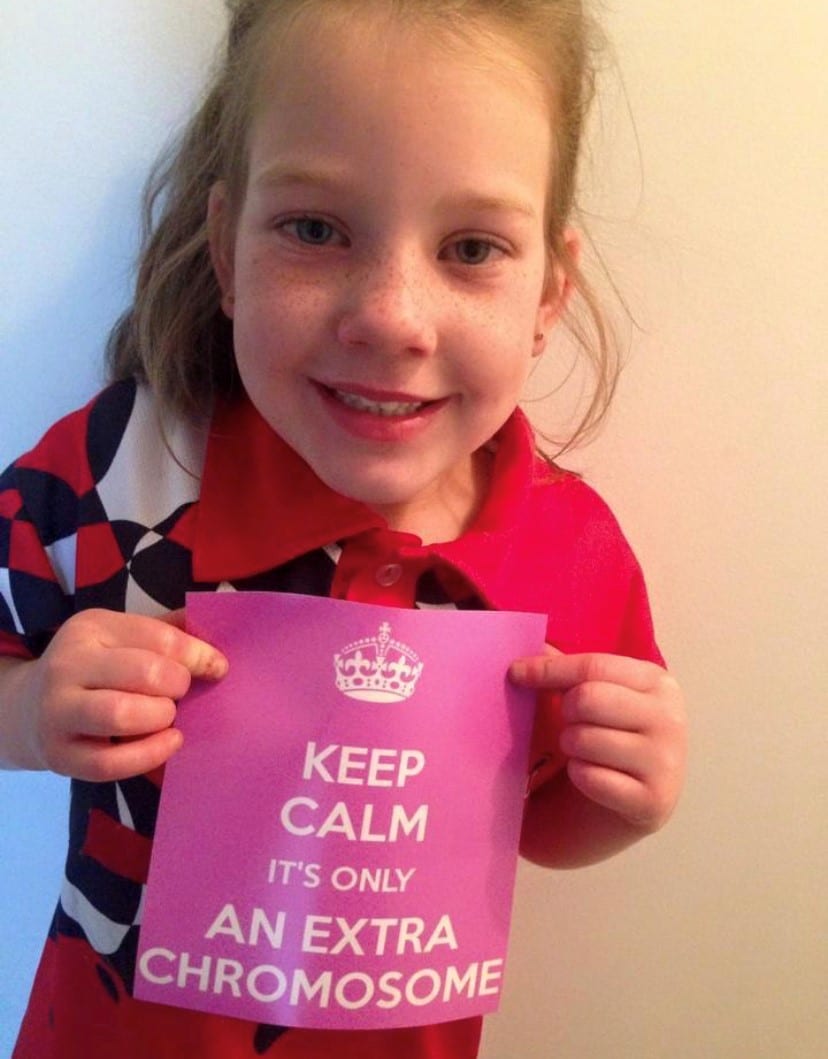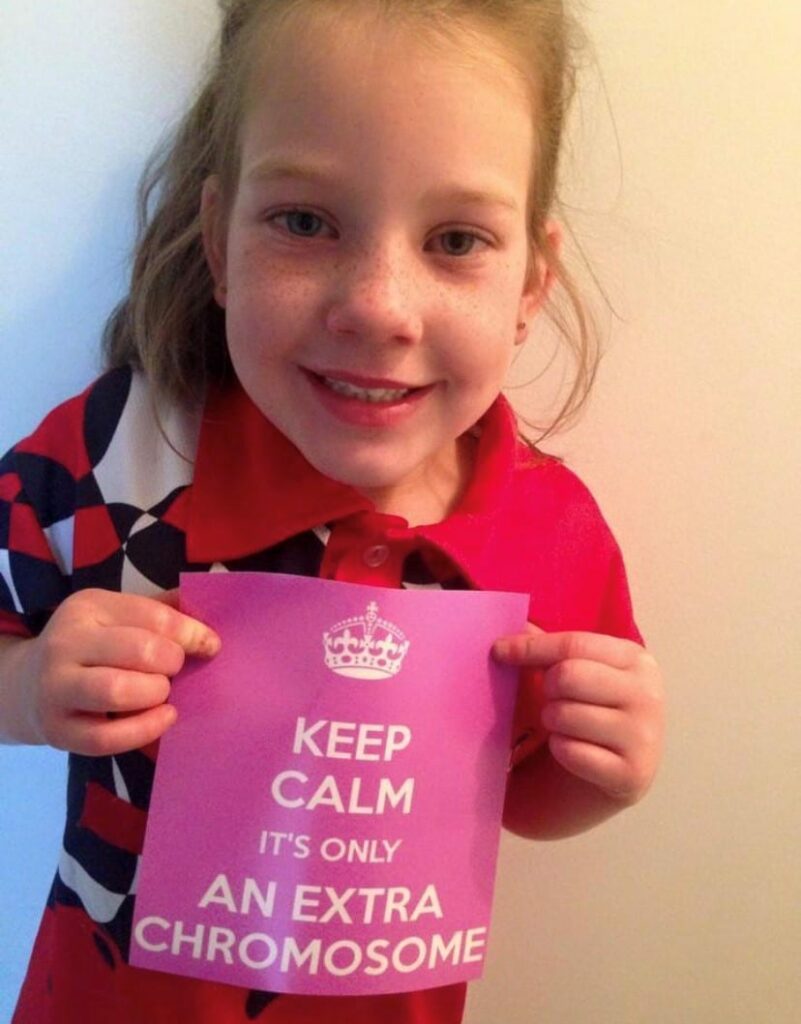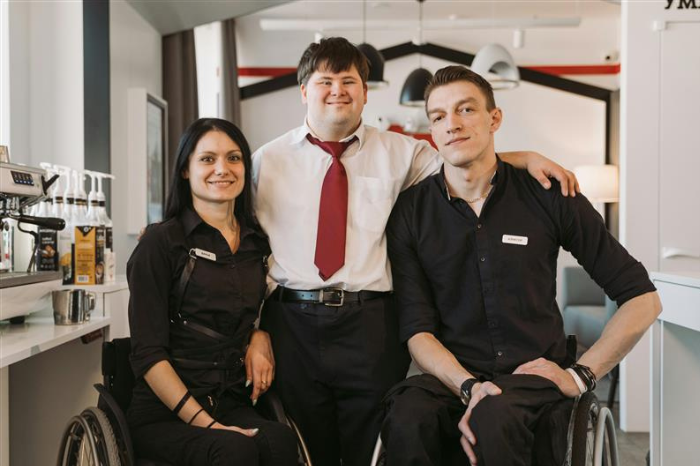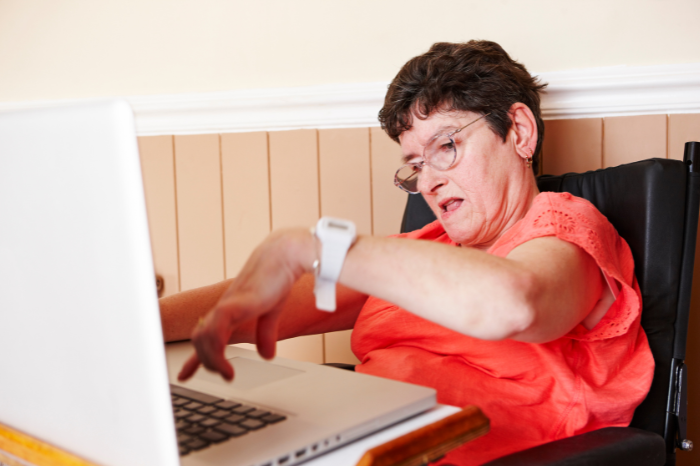
That’s why we’re helping to raise the profile of these rare genetic disorders this X and Y Chromosome Variation Awareness month.
My Plan Manager consultant Heidi is passionate about increasing understanding of X and Y chromosome variation disorders: her daughter Poppy has Triple X syndrome, also called 47XXX, or Trisomy X.
First diagnosed six years ago, Poppy, now 12 years old, experiences symptoms at the severe end of the spectrum. She has erratic moods and behaviour, physical sensory issues, an eating disorder, growth and muscle tone issues, and language and speech delays, with medical issues still emerging.
She was somewhat fortunate to receive her diagnosis early in life, as one of the significant impacts of X and Y chromosome variations can be reproductive abnormalities, which can cause issues at puberty and with fertility.
Heidi says that Poppy’s childhood diagnosis has given her options.
“It’s always hard, as a parent, to be making decisions about your child’s future, especially when we are talking about their ability to have children of their own. When your child has disabilities it’s even more complex. But having the information early on has allowed us to think about managing puberty and about Poppy’s reproductive future,” Heidi said.
“When people are diagnosed later in life, they don’t get those choices. This is part of the reason I feel so strongly about increasing awareness of Triple X syndrome and other chromosome variation disorders – earlier diagnosis could make a real difference in people’s lives.”

Australian X and Y Spectrum Support says that many affected individuals experience lifelong physical, mental or social challenges, and appropriate support is crucial, especially early interventions.
But this support is often not available because the condition is not widely understood, even in the medical profession. The wide variation in symptoms can also make it very difficult to diagnose, and it is frequently not picked up except through a genetic test.
The impact for those diagnosed later in life without early intervention and support is devastating in some situations. There is a lack of relevant and up to date information for Australians with an X & Y sex chromosome variation.
X and Y chromosome variations are conditions in which a person has an atypical number of sex chromosomes, also known as X and Y chromosomes. Males usually have one X and one Y chromosome, and females usually have two X chromosomes. Occasionally, a child can be born with extra or too few sex chromosomes.
The most common variations involve a trisomy, which means three sex chromosomes instead of the typical two. Girls who are born with an extra X chromosome are referred to as having Triple X or Trisomy X. Boys who are born with an extra X chromosome have 47,XXY, also known as Klinefelter syndrome. And boys who are born with an extra Y chromosome have 47,XYY, occasionally referred to as Jacob’s syndrome. There are other, even more rare, X and/or Y conditions. You can find out more from the Association for X and Y Chromosome Variations.
X and Y chromosome variations are spectrum disorders, so they can present no symptoms, or severe symptoms.
These disorders can affect individuals in very different ways, including:


